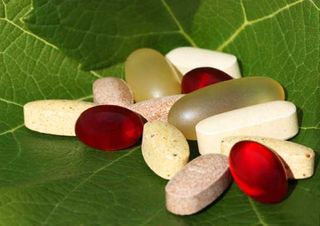Diet Supplements Contain Illegal Drugs Years After Recalls

Many dietary supplements that have been recalled can still be purchased years later, and they often contain the same banned ingredients that led to their recall in the first place, a new study finds.
In the study, researchers purchased 27 dietary supplements that had been recalled by the Food and Drug Administration because they contained pharmaceutical drugs not listed on the label. On average, three years passed between the time of the recall and the time when the researchers purchased the supplements. The researchers then analyzed the supplements to see if they contained any drugs — either the same drugs that led to their recall, or new ones.
About two-thirds (66.7 percent) of recalled supplements still containedpharmaceutical drugs, the study found. Drugs were found in 85 percent of the sports enhancement supplements, 67 percent of the weight loss supplements and 20 percent of the sexual enhancement supplements that the researchers analyzed.
"The FDA is simply not getting the job done," in terms of removing potentially dangerous supplements from the U.S. market, said study author Dr. Pieter Cohen, an assistant professor of medicine at Harvard Medical School and a general internist at Cambridge Health Alliance in Boston.
The drugs found in the recalled supplements included the following: sibutramine (an ingredient found in diet drugs that has been linked to an increased risk of heart attack and stroke), sildenafil (the active ingredient in Viagra), fluoxetine (the antidepressant marketed as Prozac) and various anabolic steroids, which can cause liver failure.
Most of the supplements contained the same banned ingredient that led to their recall, but 20 percent contained one or more additional ingredients. For example, the supplement "Mince Belle," which is marketed for weight loss, containedProzac and a chemical cousin of sibutramine, according to the study. [Wishful Thinking: 6 'Magic Bullet' Cures That Don't Exist]
Dietary supplements are allowed to contain ingredients such as vitamins, minerals and herbs, but they are not permitted to contain prescription or illegal drugs.
Sign up for the Live Science daily newsletter now
Get the world’s most fascinating discoveries delivered straight to your inbox.
Although previous studies have found that recalled supplements are still available on store shelves after a recall, the new study is the first to look at whether these recalled supplements still contain drugs, or whether manufacturers have taken steps to remove the drugs. The findings show that the latter is often the case.
The FDA has previously stated that it is difficult to prevent adulterated supplements from entering the U.S. marketplace because these supplements often come from foreign manufacturers. But the new study found that 13 out of 20 supplements made by U.S. manufacturers still contained pharmaceutical drugs after their recall.
"It's unacceptable that the FDA lets U.S. manufacturers continue this practice," Cohen said.
Manufacturers may feel comfortable selling their supplements after they have been recalled because they have come to realize that the FDA does not actually enforce the recalls, Cohen said.
The FDA needs to retest supplements that are available after a recall, to see if they are free of drugs, and if not, there should be serious consequences for the manufacturers, Cohen said.
The researchers could not determine whether the supplements purchased for the study were manufactured before or after the FDA recall. However, the researchers noted that the purchased supplements had expiration dates that were very far in the future (more than a year after the recall date), suggesting these were newly manufactured drugs.
The study is published in the Oct. 22 issue of the Journal of the American Medical Association.
Follow Rachael Rettner @RachaelRettner. Follow Live Science @livescience, Facebook & Google+. Original article on Live Science.

Rachael is a Live Science contributor, and was a former channel editor and senior writer for Live Science between 2010 and 2022. She has a master's degree in journalism from New York University's Science, Health and Environmental Reporting Program. She also holds a B.S. in molecular biology and an M.S. in biology from the University of California, San Diego. Her work has appeared in Scienceline, The Washington Post and Scientific American.
